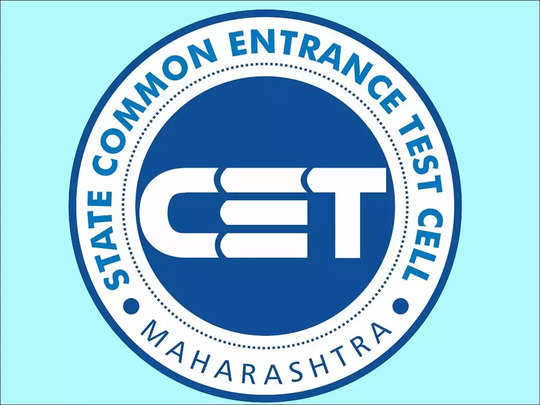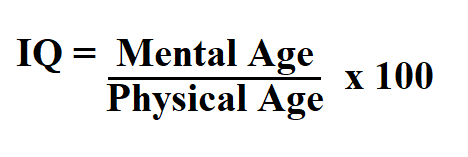
On 8th October 2021, I appeared for Maharashtra M.Ed CET. I am here to share my experience in terms of the syllabus and questions being asked in the entrance exam. I am writing this article on 8th October 2021 (same day), just after coming home from the exam center. Let me not spend much time describing the nitty-gritty of the journey from applying for M.Ed CET to getting the admit card (which took months) and finally exam date (which was a sudden announcement after a long pause). Full marks to the ongoing COVID situation for derailing the entire process.
Before talking about the availability of resources for M.Ed (which is scarce) I will talk about the intention to prepare for M.Ed (which is also scarce), I personally searched the syllabus just two days before the entrance exam. The same seriousness goes with the publishers as well. As teachers and educators, we are not a great market for the publishers to print these books. I think they are aware of our habit of scanning books and sharing PDFs on social circles. so, that option is unavailable! There are some videos available, predominantly made by institutes which help in cracking competitive exams but they too think M.Ed as not that competitive so we are left with one of two videos on Youtube.
Coming to the syllabus and questions, we have 100 questions to be answered in 90 mins. Trust me, you will answer them way before time. The weightage of the topics are mentioned below:
| Topic | Marks / No. of Questions |
| 1. Educational Philosophy and Sociology | 20 |
| 2. Educational Psychology | 20 |
| 3. Educational Evaluation and Statistics | 20 |
| 4. School Administration and Management | 20 |
| 5. Information and Communication Technology & Research Aptitude | 20 |
Let me recall questions as per the above-mentioned topics:
1. Educational Philosophy and Sociology: Questions were asked on the place/schools opened by Rabindranath Tagore in different districts of India (Other than Shantiniketan). What is the aim of education according to Rabindranath Tagore (Moral, Physical, Spiritual, intellectual…these are not in the order of priority).
Three questions were asked on Functionalism. A broad school of thought originating in the U.S. during the late 19th century attempted to counter the german school of structuralism led by Edward B. Titchener. Functionalists, including psychologists William James and James Rowland Angell, and philosophers George H. According to functionalism philosophy is the fruit of the spirit. Although as per the syllabus mentioned on the official site (Idealism, Realism, Naturalism, and Pragmatic philosophies are mentioned) I was surprised to see questions on Functionalism.
Throughout the paper, you may often find names like Mahatama Phule, Mahatma Gandhi, John Dewey, Pluto, Swami Vivekanand, and Rousseau in the options list. So better to know significant achievements made by each one of them. Plus positive changes brought in the society because of education – this one is tricky because every option looks correct 🙂
Under 2. Educational Psychology, many questions on social psychology, Theories of learning, Constructivism, Guidance, and Counseling were asked.
like Psychologist Robert Sternberg defined intelligence as “mental activity directed toward purposive adaptation to, selection, and shaping of real-world environments relevant to one’s life.” The formula of IQ is Mental Age / Chronological Age multiplied by 100. IQ scores above 150 are too good to have, etc.

Constructivism is most closely associated with the Swiss psychologist Jean Piaget (1896-1980) whose epistemological theory is considered
one of the most influential constructivist theories in education where knowledge is considered dynamic (not static).
Guidance is a lifelong process – which aims to provide career development support for individuals of all ages, at all career stages. It includes careers information, advice, counseling, assessment of skills, and mentoring.
Few questions on defense mechanisms in psychology were asked – please understand the keywords here:
i. Denial – This involves a person not recognizing the reality of a stressful situation in order to protect themselves from overwhelming fear or anxiety.
ii. Distortion – involves a person believing something to be true when it is not.
iii. Projection – involves a person accusing someone else of having thoughts or feelings that they themselves are having. It can be a way of avoiding unwanted thoughts or avoiding responsibility for a particular behavior.
iv. Dissociation – involves feeling disconnected from a stressful or traumatic event — or feeling that the event is not really happening. It is a way to block out mental trauma and protect the mind from experiencing too much stress.
v. Repression involves avoiding thinking about something to block out painful or uncomfortable feelings, emotions, and impulses. Repression is an unconscious process — a person is unaware that they are doing it.
vi. Reaction formation – involves acting in a way that contradicts unacceptable or anxiety-provoking thoughts or feelings as they arise. It is a way of protecting the mind from uncomfortable thoughts or desires.
vii. Displacement – involves a person feeling that they cannot express a negative emotion toward a particular person, so they direct those negative emotions toward someone else.
viii. Intellectualization – involves a person using reason and logic to avoid uncomfortable or anxiety-provoking emotions.
3. Educational Evaluation and Statistics – I hope the first two units were not exhaustive, don’t worry not everyone knows about all the theories. The engineer’s attitude works here as well – you are not alone dying of breathlessness in this pool of theories! That brings us to statistics and evaluation. Time to recall your understanding of Summative, Formative, and Diagnostic assessments. By the way, during the COVID most of the educational boards adopted the remedial approach of evaluation to grade 10th and 12th students. Here you may get questions on the effectiveness of MCQs, Oral exams, wide-scale type, true and false, or Open book tests.
Something new I learned under this section was reliability, Validity, Standard Scores in statistics, ‘t-score’, ‘z-score’, and deviation IQ. Google for more information. However this statement is enough to tease your brain- a test can be reliable without being valid.

4. School Administration and Management:
The first question in this category (I received was) – What doesn’t come under school administration? Options are a. Planning, b. Organizing, c. Innovation, and d. Coordination. I choose c. Innovation. Which apparently is right if you read the five components of school administration. But I was puzzled when asked who sets the Educational Objectives for the institution. I choose both, which I am not sure about but sometimes you go with your gut feelings.
Under this section, you will also get scary dates and article numbers! Yes, we are talking about Article 351 and 21A, the 86th amendment, The Constitution of India, RTE, National Education Policy, Kothari Commission, Secondary School Code, NEP, and current events. Plus know the basic definitions of club, community, country, and crowd.
5. Information and Communication Technology & Research Aptitude:
This was my favorite bite (not because I am a B.E in Computer Science), but the validity of the questions with no ambiguity, clear acronyms, and simple application-based questions.
Just imagine someone asking you which is not a social media site and the options are a. Facebook, b. Twitter, c. Tumblr d. Google. I would not say further!
What is a virus? Operating System or Program.
Which is not an Operating System? Windows or Microsoft Office.
Operating System used in mobile phones – Windows XP or Android.
LAN – local area network
MOOC – Massive Open Online Courses
ICT – Information Communication and Technology
URL – Uniform Resource Locator
CD-ROM compact disc read-only memory
Smart Classrooms, blended learning, and EDUSAT. I am sure you don’t know one of the three…let me guess… it’s EDUSAT or GSAT-3, was a communications satellite which was launched on 20 September 2004 by the Indian Space Research Organisation. EDUSAT is the first Indian satellite built exclusively to serve the educational sector. Astonishing fact right, expect everything and anything under the umbrella (keyword) of ‘Education’. After all, you are seeking to be a Master of Education!